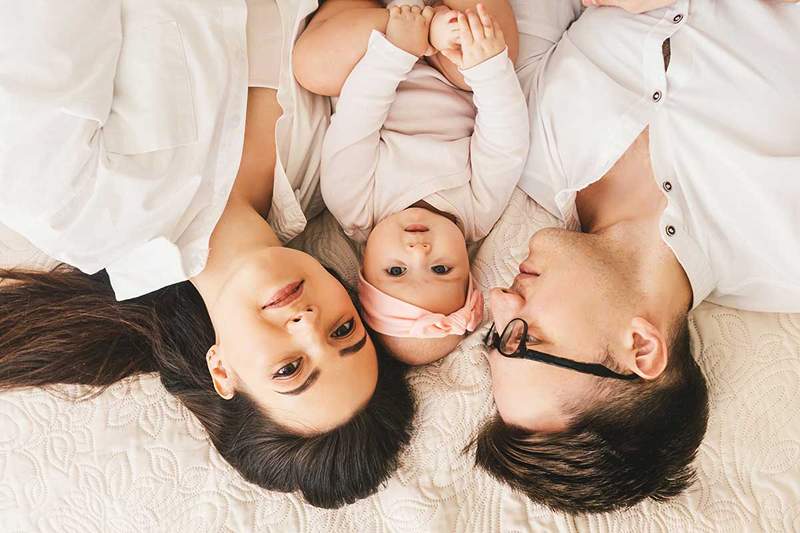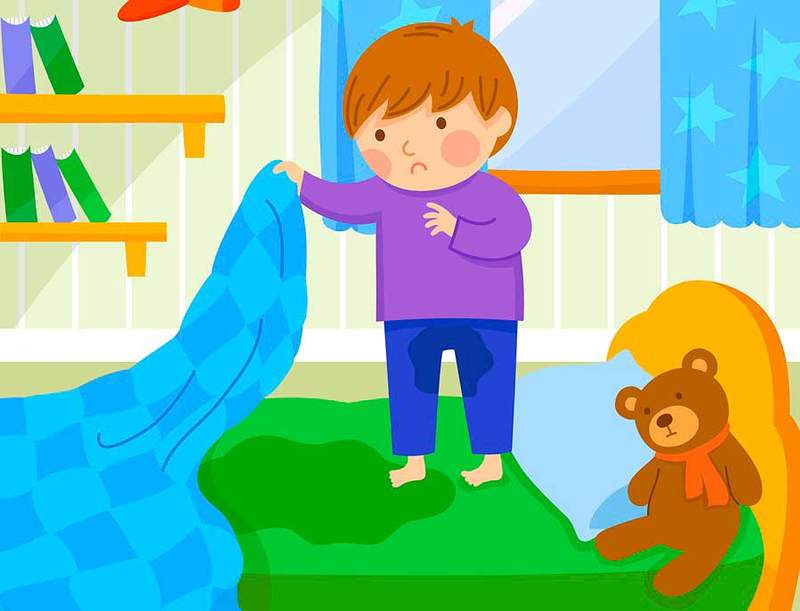Psychological implications in children of gamete donation

- 4240
- 792
- Lorenzo West I
More and more babies are born through Fertilization techniques How can the Artificial Insemination (AI) wave In vitro fertilization (IVF). In some cases, due to problems in conception, couples must resort to the donation of gametes to achieve the long -awaited pregnancy. Fortunately, there is the possibility of achieving fertilization thanks to a sperm or ovules donation, as the case may be.
Content
Toggle- Types of donation
- Is it convenient to tell the children their origins?
- Children's reaction to knowing that conception has been with a donor
- Are there more conflicts in children for knowing that they are not genetically equal to their parents?
- Conclusions
- References
Types of donation
Advances in reproductive medicine since the birth of the first baby through in vitro fertilization (IVF) in 1978, have resulted in more than 3 million children around the world born living thanks to assisted reproduction techniques. Many of these children are conceived using donated gametes (sperm or ovules), either through donor insemination or ovules donation.
The Insemination with donor It refers to the insemination of a woman with the sperm of a man who is not her husband or couple. The resulting child is genetically related to the mother, but not to the father who raises the child.
The ovules donation is like insemination with a donor, since the child is genetically related to a single father, but in this case it is the mother with whom the child lacks a genetic bond.
Finally, with the Embryo donation, The child lacks a genetic bond with both parents. In the event that intrafamily donation was made, in which the donation of gametes is carried out among family members, the father will have a partial genetic bond with the child.
Is it convenient to tell the children their origins?
According to various studies, people who become parents through assisted reproduction procedures involving gametes donation They tend not to tell their children about the conception of their donor And, therefore, most children conceived in this way do not know that the person they know as their father (in the case of sperm donation) or their mother (in the case of ovules donation) is not His genetic father.
Little is known about the psychological consequences of explaining to a child who has been conceived thanks to the donation of gametes in family relationships, as well as their child development, in large part because very few children have been informed about their genetic origins. However, of the studies on the small number of people who know the conception of their donor, and according to the child's age when he counts and how to do it, this seems to have a strong impact on his reaction.
 Enuresis, causes and treatment
Enuresis, causes and treatment Children's reaction to knowing that conception has been with a donor
The Small children They tend to show curiosity about their unknown donor and the desire to discover more about him. Similarly, teenagers who have known about their conception of donor since childhood They want to know more about their donor, and many believe that this would help them learn more about themselves. This is in line with the studies of adopted individuals looking for their biological parents, most of whom report that curiosity and desire to acquire a more complete sense of identity are their main motivations to start a search.

In contrast, those who discover the conception of their donor later in life, particularly those who find out by accident or in adverse circumstances As the divorce of the parents, they seem Show more negative responses, including anger towards their social parents and feelings of betrayal and distrust.
Are there more conflicts in children for knowing that they are not genetically equal to their parents?
There are not too many studies in this regard, but in an investigation into the raising of children and the adjustment of children in families of assisted reproduction of the United Kingdom in which families were examined (especially lesbians and single mothers with 7 -year -old children ) conceived by donor insemination, and it was found that children and their relationship with their parents were no different from the normal population average, in addition its social functioning was perfectly adapted.
No significant differences were found between family types in terms of a bad maternal relationship, demonstrating that Conflict and hostility between mothers and children is not higher Whether the origin of the child is revealed as if it is not done in the families of donation of gametes with respect to the families of natural conception.
Although mother-child relations were no more negative because they were conceived thanks to the donation of gametes in relation to the families of natural conception, these relationships were less positive if there was no good communication between parents and their children.
Conclusions
A perennial concern when using donated gametes in the treatment of infertility is the effect on the child and his family of the traditional anonymity of the donor and the secret of the procedure. In general, parents and caregivers want To decide on the convenience of doing so or not, depending on family and social circumstances.
Anyway, it seems that The lack of communication on the child's genetic origins can interfere with the positive interaction between parents and their children. In general, the secret that surrounds the conception of the child's donor is associated with a less positive interaction between mothers or fathers in families that receive gametes.
References
- Chan RW, Raboy B, Patterson CJ. Psychosocial adaptation in children conceived through the insemination of donors by lesbian and heterosexual mothers. Child development. 1998; 69 (2): 443-457
- Cry. Psychological implications of anonymous pregnancy. In: Offerman-Zuckerberg J, editor. Gender in transition: a new border. New York: Plenary; 1989.
- Daniels K, Taylor K. Secret and Opening in the Insemination of Donors. Life policy and sciences. 1993; 12 (2): 155-170.
- Golombok S, Jadva V, Lycett E, Murray C, Maccallum F. Families created by gamete donation: follow -up at 2 years. Human reproduction. 2005; 20 (1): 286-293.
- https: // pubmed.NCBI.NLM.NIH.GOV/8561188/
- https: // pubmed.NCBI.NLM.NIH.GOV/19398766/
- https: // www.NCBI.NLM.NIH.GOV/PMC/ARTICLES/PMC3075381/

